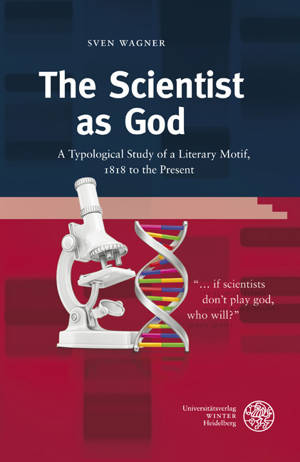
Bedankt voor het vertrouwen het afgelopen jaar! Om jou te bedanken bieden we GRATIS verzending (in België) aan op alles gedurende de hele maand januari.
- Afhalen na 1 uur in een winkel met voorraad
- In januari gratis thuislevering in België
- Ruim aanbod met 7 miljoen producten
Bedankt voor het vertrouwen het afgelopen jaar! Om jou te bedanken bieden we GRATIS verzending (in België) aan op alles gedurende de hele maand januari.
- Afhalen na 1 uur in een winkel met voorraad
- In januari gratis thuislevering in België
- Ruim aanbod met 7 miljoen producten
Zoeken
€ 43,45
+ 86 punten
Omschrijving
Ever since the publication of Mary Shelley's 'Frankenstein', in which the protagonist desires to "pour a torrent of light into our dark world" by assuming the role of creator, writers have been fascinated with the motif of the scientist as God - that is, of the scientist who seeks to rival God by engaging in such projects as creating life, resurrecting the dead, and freeing humans from sin. The present study explores the scientist-as-God motif in a wide range of literary texts, spanning different genres (fiction, drama), periods (Romantic to Postmodern), and national literatures (British, American, Canadian). The study takes a predominantly typological approach, distinguishing and examining the principal modes of representing the godlike scientist. These include cautionary tragedies about scientific hubris, feminist comedies of creaturely self-fashioning, and probing allegories of divine failure.
Specificaties
Betrokkenen
- Auteur(s):
- Uitgeverij:
Inhoud
- Aantal bladzijden:
- 263
- Taal:
- Engels
- Reeks:
- Reeksnummer:
- nr. 421
Eigenschappen
- Productcode (EAN):
- 9783825358556
- Verschijningsdatum:
- 1/02/2012
- Uitvoering:
- Hardcover
- Formaat:
- Genaaid
- Afmetingen:
- 175 mm x 251 mm
- Gewicht:
- 557 g

Alleen bij Standaard Boekhandel
+ 86 punten op je klantenkaart van Standaard Boekhandel
Beoordelingen
We publiceren alleen reviews die voldoen aan de voorwaarden voor reviews. Bekijk onze voorwaarden voor reviews.









